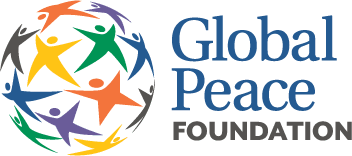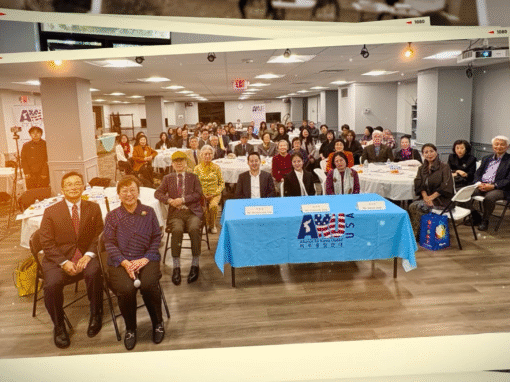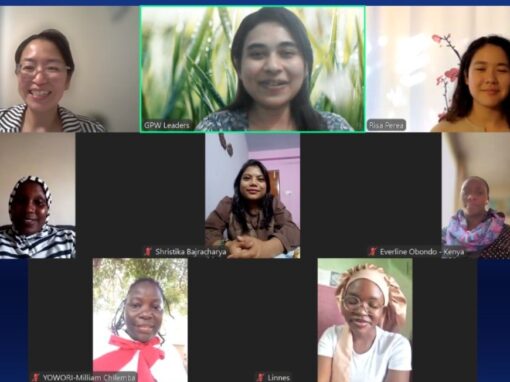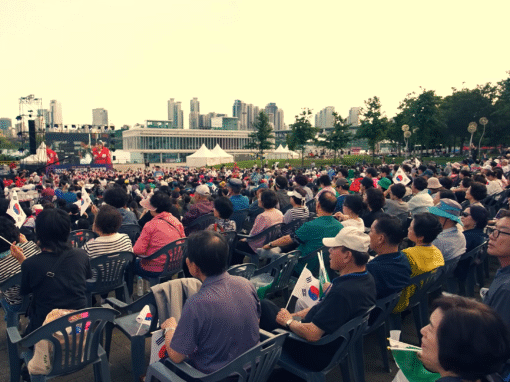By Eric Olsen and Hansol Kim
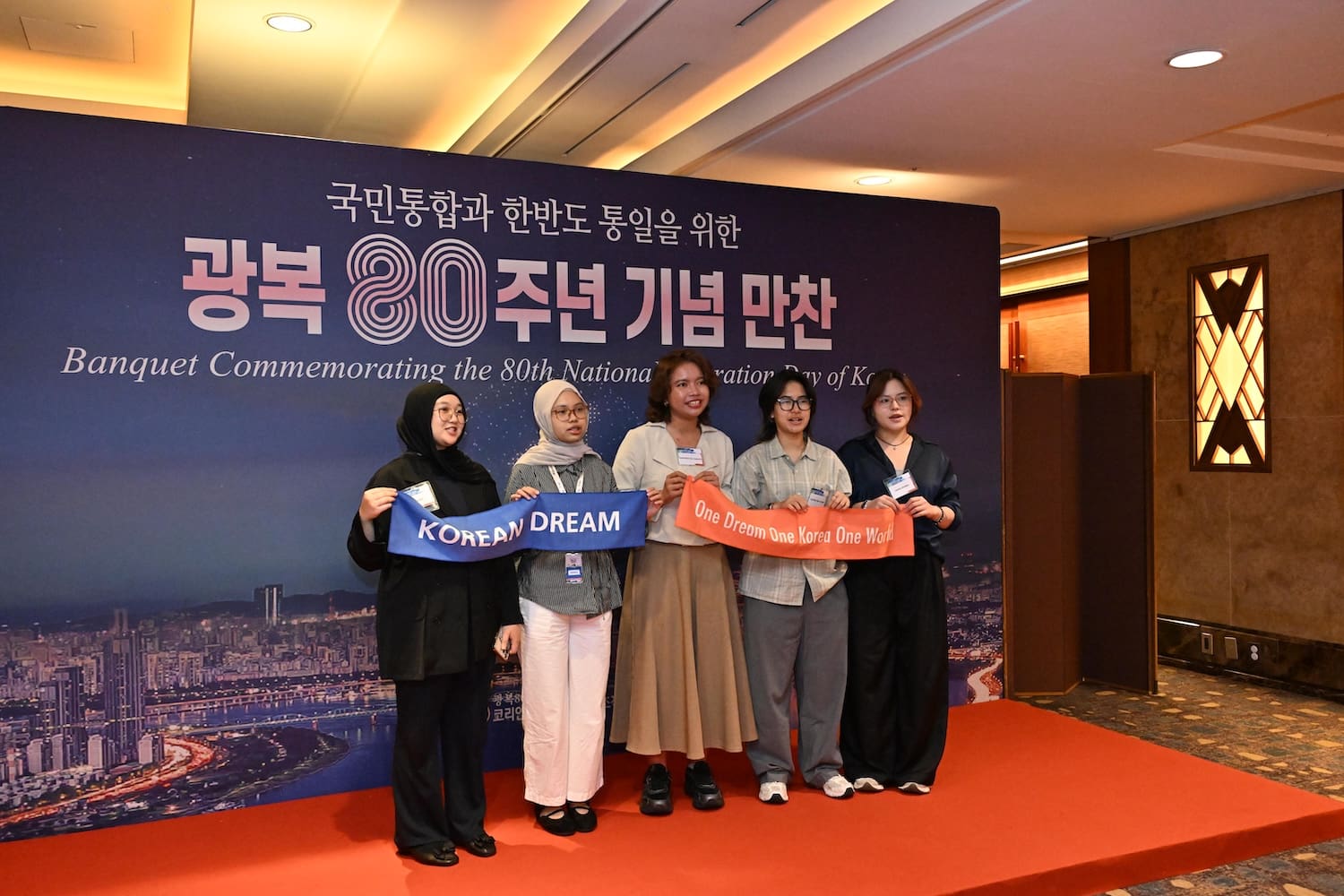
Attendees of the International Forum on One Korea 2025 show support for the One Korea Global Campaign
Global leaders, policymakers, human rights advocates, and diaspora communities advance steps for a free and unified Korea in commemoration of the 80th National Liberation Day of Korea
Some 700 participants from 20 countries proposed concrete action plans to support a free and unified Korea at the International Forum on One Korea, Action for Korea United Banquet, and Korean Dream Han Gang Festa held in Seoul on August 14-15.
Co-hosted by the Global Peace Foundation (GPF), Action for Korea United (AKU), One Korea Foundation (OKF), and Blue Banner, the forum hosted dedicated sessions on international environmental cooperation, peace and development initiatives in Latin America and Africa, North Korean human rights violations, and international and Korean diaspora support for a unified Korea.
Commemorating liberation
August 15, National Liberation Day, holds unique significance as the only holiday jointly celebrated in both North and South Korea. It commemorates the end of Japanese occupation in 1945 and the establishment of independent governments in both Koreas in 1948. As a symbolic expression of unity, the holiday serves as both a reminder of the human tragedy of division and the enduring aspiration of all Koreans to embrace their shared culture and history as one united people.
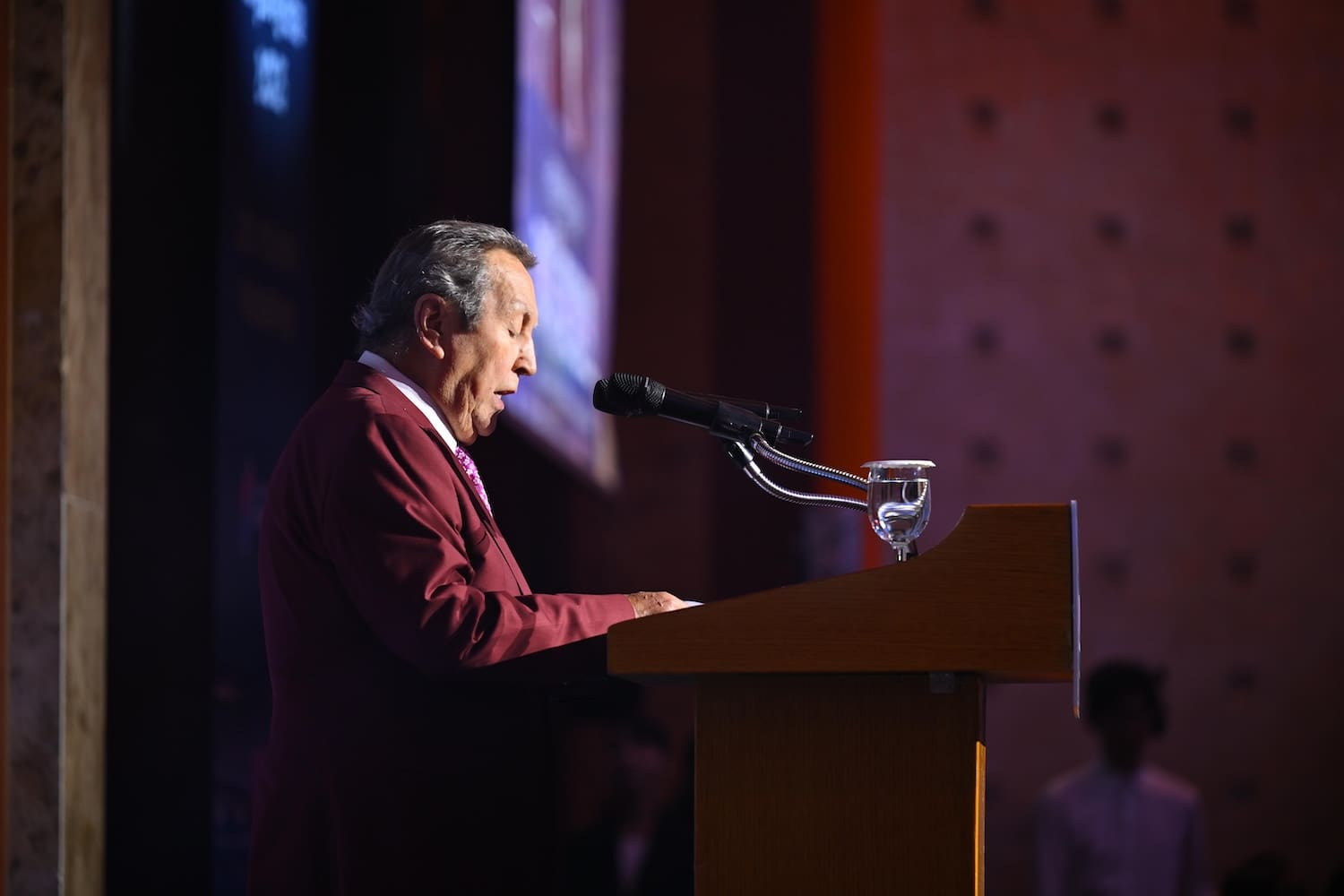
H.E. Vinicio Cerezo, Former President of Guatemala
Addressing the “80th Liberation Day Commemorative Banquet for National Unity and Korean Peninsula Unification” on day 1, former Guatemalan President and founding member of GPF’s Latin American Presidential Mission Vinicio Cerezo said, “Reconciliation between brothers and sisters is not merely a matter of political negotiation. It is an act of vision, courage, and moral leadership that can transform not only the map of a nation, but the destiny of humanity itself.
“The cause you are pursuing here — and that [GPF Chairman] Dr. Moon, carrying the dream he inherited from his father, has advanced with visionary clarity and unwavering conviction — is a cause that transcends borders.”
South Korean Unification Minister Chung Dong-young told banquet guests the Republic of Korea “faces trade crises from the United States, security crises from North Korea, and political crises marked by extreme polarization.” He outlined four key policy directions, including restoring inter-Korean dialogue and trust, strengthening exchanges and humanitarian assistance to improve conditions for North Korean residents, achieving peaceful coexistence on the Korean peninsula, and pursuing gradual unification based on democratic principles.
In the keynote address, Global Peace Foundation Chairman Dr. Hyun Jin Preston Moon posed the compelling question: “Where do we stand today, 80 years later? . . . The aspirations of the 1919 March 1st Movement have not yet been realized. While South and North have walked completely different paths with opposite worldviews, the Democratic People’s Republic of Korea has transformed into an oppressive, dictatorial nuclear-armed state, threatening regional and global security.”
South Korea, in turn, “has sacrificed the traditional extended family system—the most sacred cultural institution—mistakenly accepting materialism and progressive perspectives on gender, marriage, and family as symbols of ‘modernity.’”
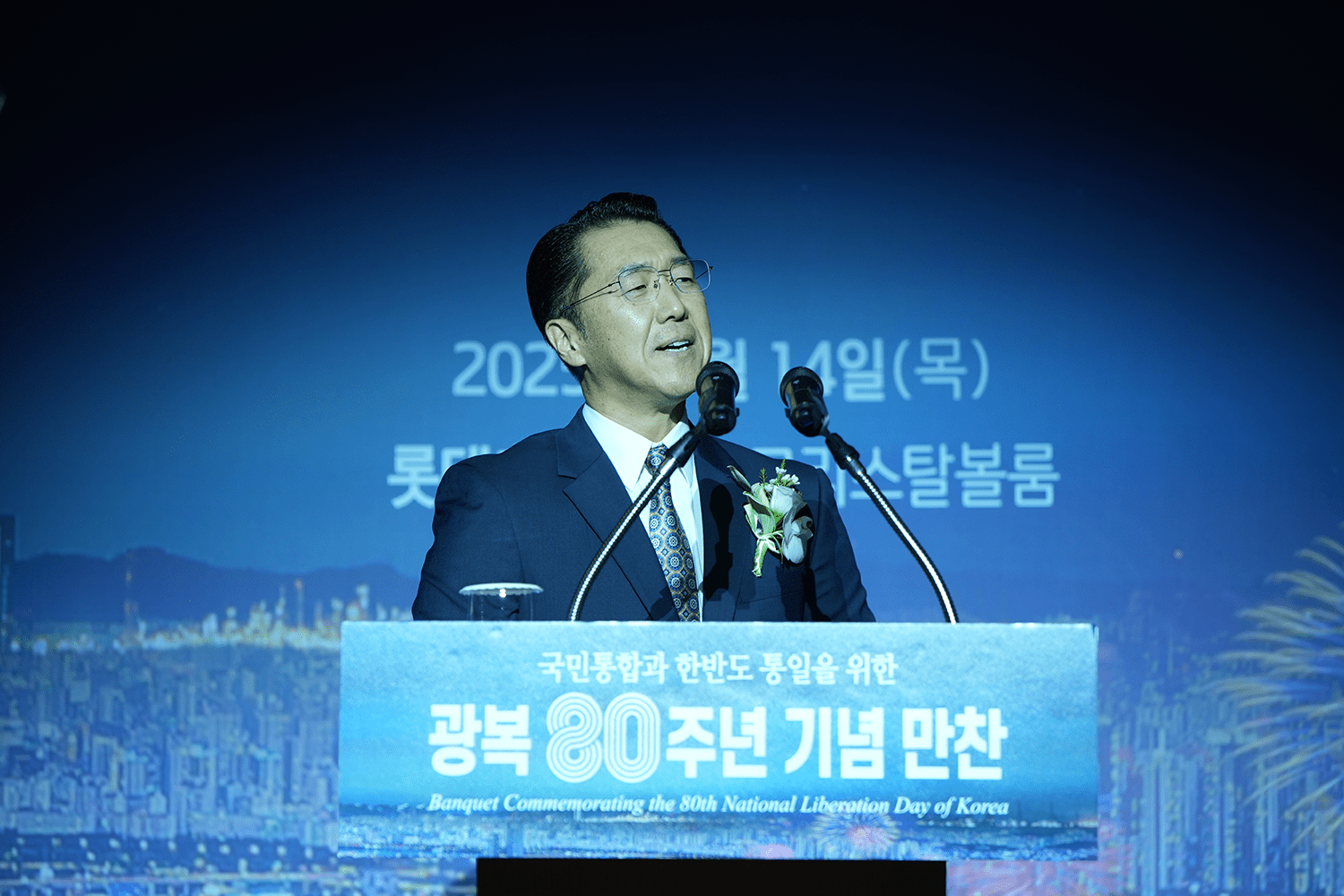
Dr. Hyun Jin Preston Moon, Chairman of Global Peace Foundation, speaks at the Action for Korea United Banquet Commemorating the 80th National Liberation Day of Korea
Emphasizing the economic impact of unification, the GPF chairman said, “Unification would add 25 million people who share the same language and culture, greatly expanding the labor force and domestic market through a young population, making a ‘Second Miracle on the Han River’ possible.”
Dr. Moon presented three proposals to the current government:
- The official adoption of the Korean Dream vision, which the previous government had already endorsed
- Dissolution of the Ministry of Unification and establishment of a civilian advisory committee to maintain continuity and “to separate the unification agenda from politics,” and
- Mandatory Korean Dream education for all elementary, middle, and high schools to dispel misinformation about costs relative to benefits.
Environmental protection and international cooperation
Day 1 on August 14 led with a roundtable session “Environmental Forestation, Cross Border Peace Initiatives and Youth Leadership,” that presented environmental conservation as a critical, strategic methodology not only to protect the earth’s fragile ecosystem but also to foster international cooperation, stability, and peace.
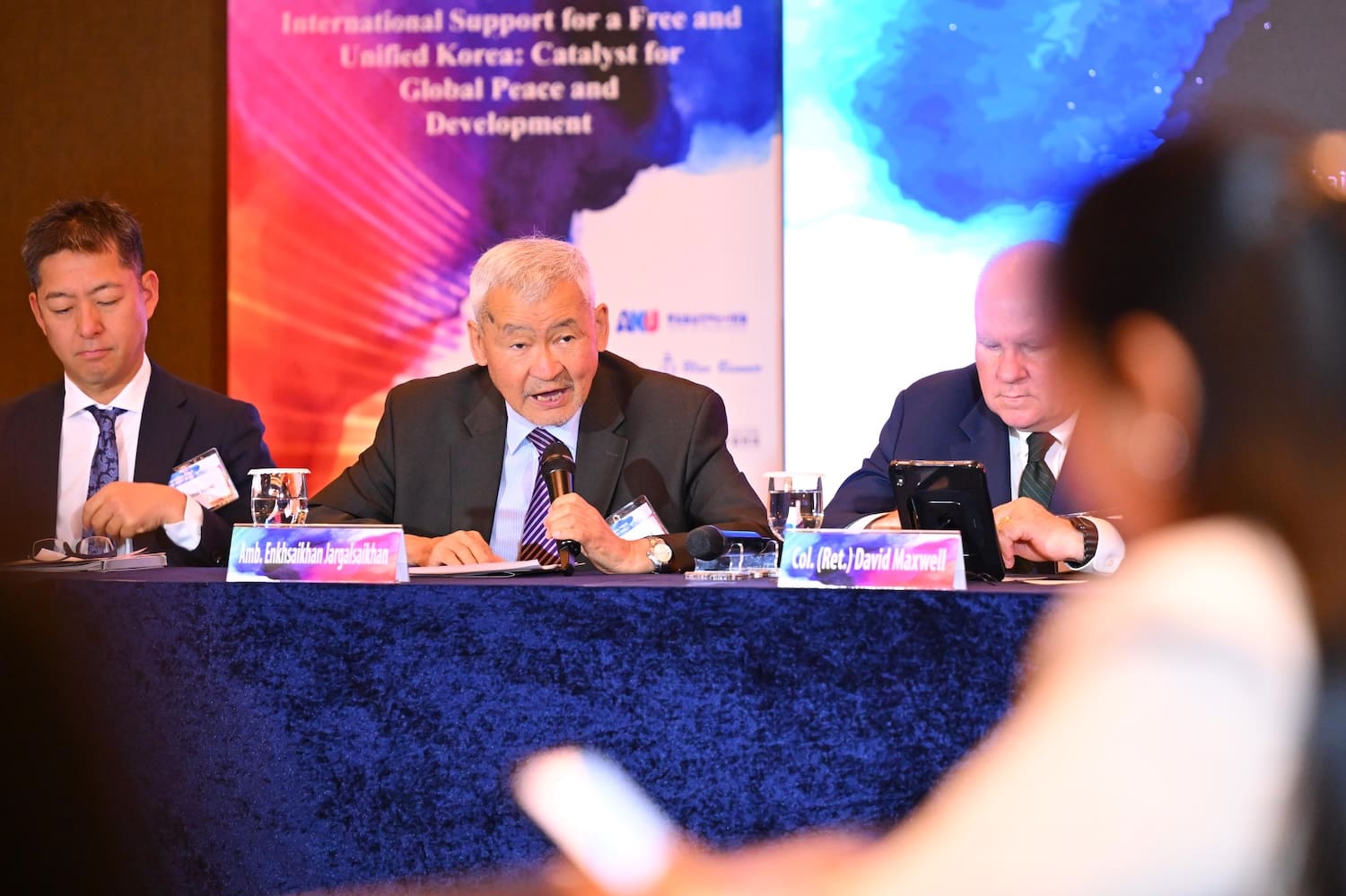
Ambassador Enkhsaikhan Jargalsaikhan, Chairman, Blue Banner, Mongolia; Former Permanent Ambassador of Mongolia to the United Nations
Ambassador Jargalsaikhan Enkhsaikhan, former permanent representative of Mongolia to the United Nations, said climate change is affecting food security, animal husbandry, and agriculture in East Asia. Loss of topsoil and strong winds affect air quality, and fine dust causes direct economic losses in the neighboring countries, he said. The ambassador noted the significance of the 2024 summit of China, Japan, and South Korea, in which neighboring countries pledged to cooperate with Mongolia to reduce East Asian sandstorms. Amb. Enkhsaikhan said that Mongolia could serve as a bridge for Northeast Asian environmental cooperation.
Other speakers expressed the possibility of expanding environmental action beyond simple protection to a strategic platform for peace and prosperity involving civil society, governments, and corporations. Panelists noted that countries like Mongolia, South Korea, and Kenya showed that cooperation is essential in responding to the climate crisis and sharing models of sustainable land management.
The second roundtable, “Learned for Peace and Development in Latin America and Africa,” explored how conflict resolution experiences from Latin America and Africa could provide insights for Korean peninsula peace and unification.
Former Presidents Vinicio Cerezo of Guatemala and Jamil Mahuad of Ecuador, and Kenyan Parliamentarians Ikana Fredrick Lusuli, Duncan Maina Mathenge, and Agnes Pareiyo Matane emphasized that sustainable peace can only take root with civil society’s continuous participation with principled political leadership.
Ms. Matane noted the significant role of women in mediating conflicts between the Maasai and other tribes, saying true peace and integration can only be achieved when the voices of women and marginalized groups are sufficiently reflected.
In roundtable III, “Role of Korean Diaspora in Realizing a Free and Unified Korea,” Koreans living in the United States, UK, and Japan discussed the role, achievements, and future goals of the Korean diaspora in the peaceful unification process.
Speakers noted the important voice of North Korean escapees and the urgent need for international action to address human rights violations in the North. Others discussed the challenges for youth of maintaining a connection with Korean heritage while living abroad, and of actively leading unification and human rights agendas in the political, legal, educational, and civil society sectors of their respective countries.
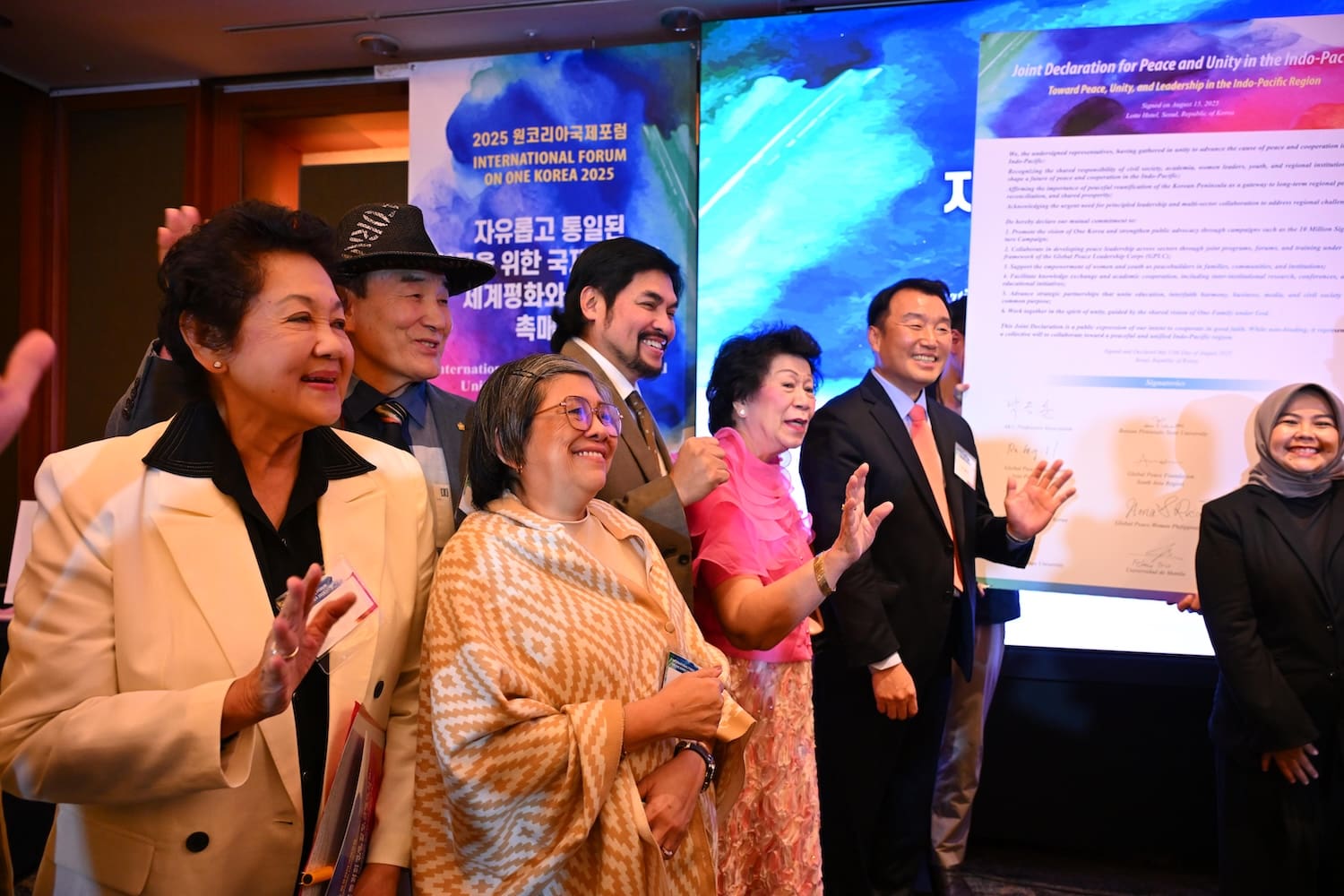
Signing ceremony involving Global Peace Leadership Corps, Global Peace Women Korea, regional delegates, and the Indo-Pacific Peace Forum in support of One Korea at the International Forum on One Korea
Expanding support for unification
The forum continued on day 2 with comprehensive discussions on the strategic role and practical measures needed to engage the international community in the cause of peaceful Korean unification.
Scholars and human rights experts from China, Japan, South Korea, and the United States addressed the roundtable, “Strategic Role of the United States and Northeast Asia. Another panel, “Regional Solidarity for Korean Unification: Mobilizing the Indo-Pacific for Peace,” examined civil society support for Korean unification in countries in the Indo-Pacific region.
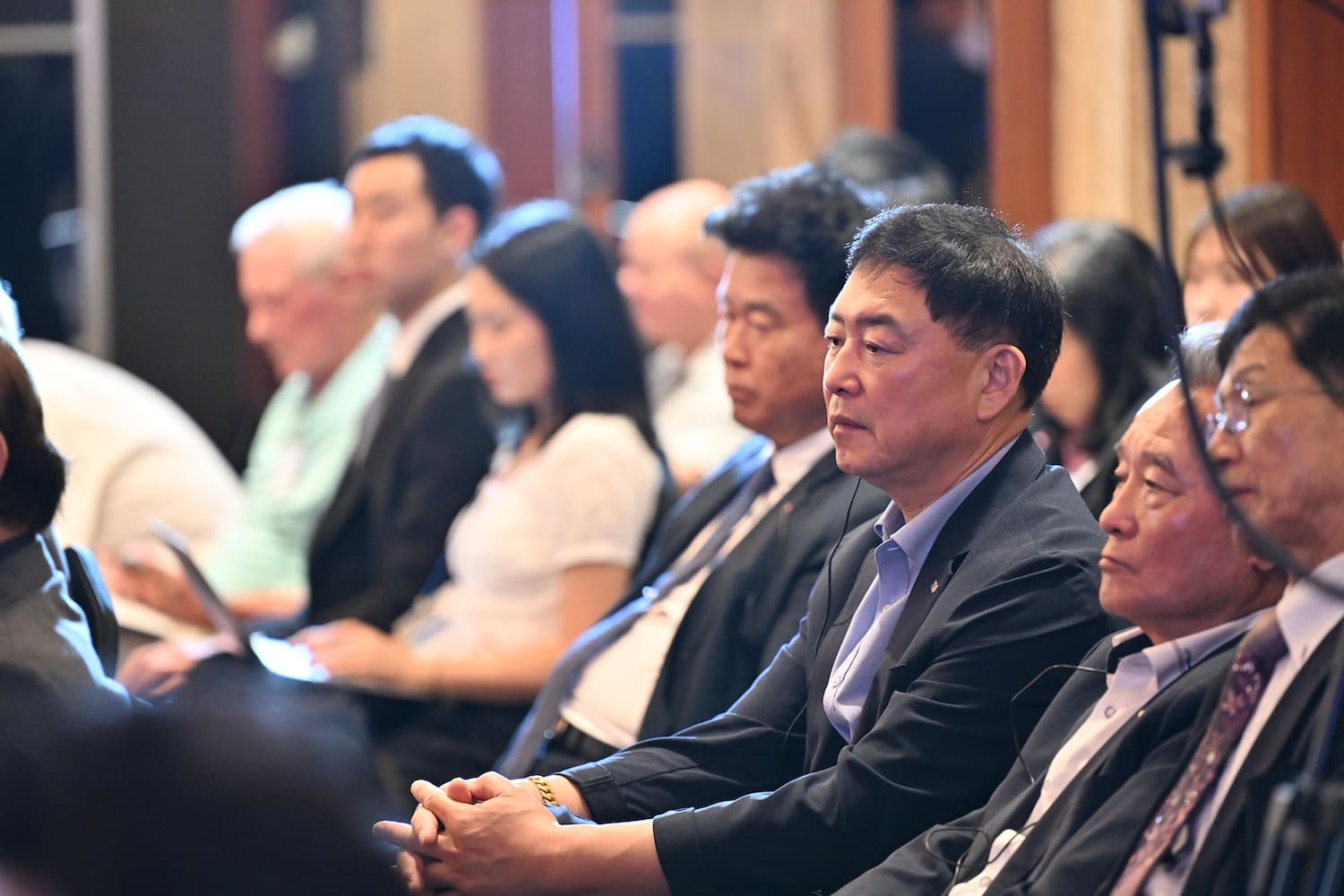
Audience at the 2025 International Forum on One Korea
Speakers emphasized the economic potential of a unified Korea that combined North Korea’s abundant resources with South Korea’s technological capabilities. “The unification benefits far exceed unification costs,” observed Dr. Kwang-kyu Nam, director of the Maebong Institute for One Korea. He urged a paradigm shift, recognizing “unification as an investment, not a cost.”
Speakers from Indonesia, India, and the Philippines described broad-based efforts to support unification on college campuses, broadcast media, through signature campaigns, and among opinion leaders. At the conclusion, 12 major organizations agreed to strengthen joint activities and mutual cooperation for the peaceful unification of the Korean peninsula.
Prioritizing human rights
Dr. Suzanne Scholte, Chair of the North Korea Freedom Coalition and a global human rights activist, urged international attention to North Korean human rights issues. She said that “although I have arranged for hundreds of North Korean defectors to testify before the U.S. Congress and the UN over the past 20 years, North Korea’s human rights situation remains serious,” stressing that “sustained international pressure must be combined with direct support for North Korean residents.”
Dr. Scholte said the free flow of information is “the starting point for North Korean regime change and that North Korean defectors’ testimonies are the most powerful tool for revealing North Korean human rights conditions.
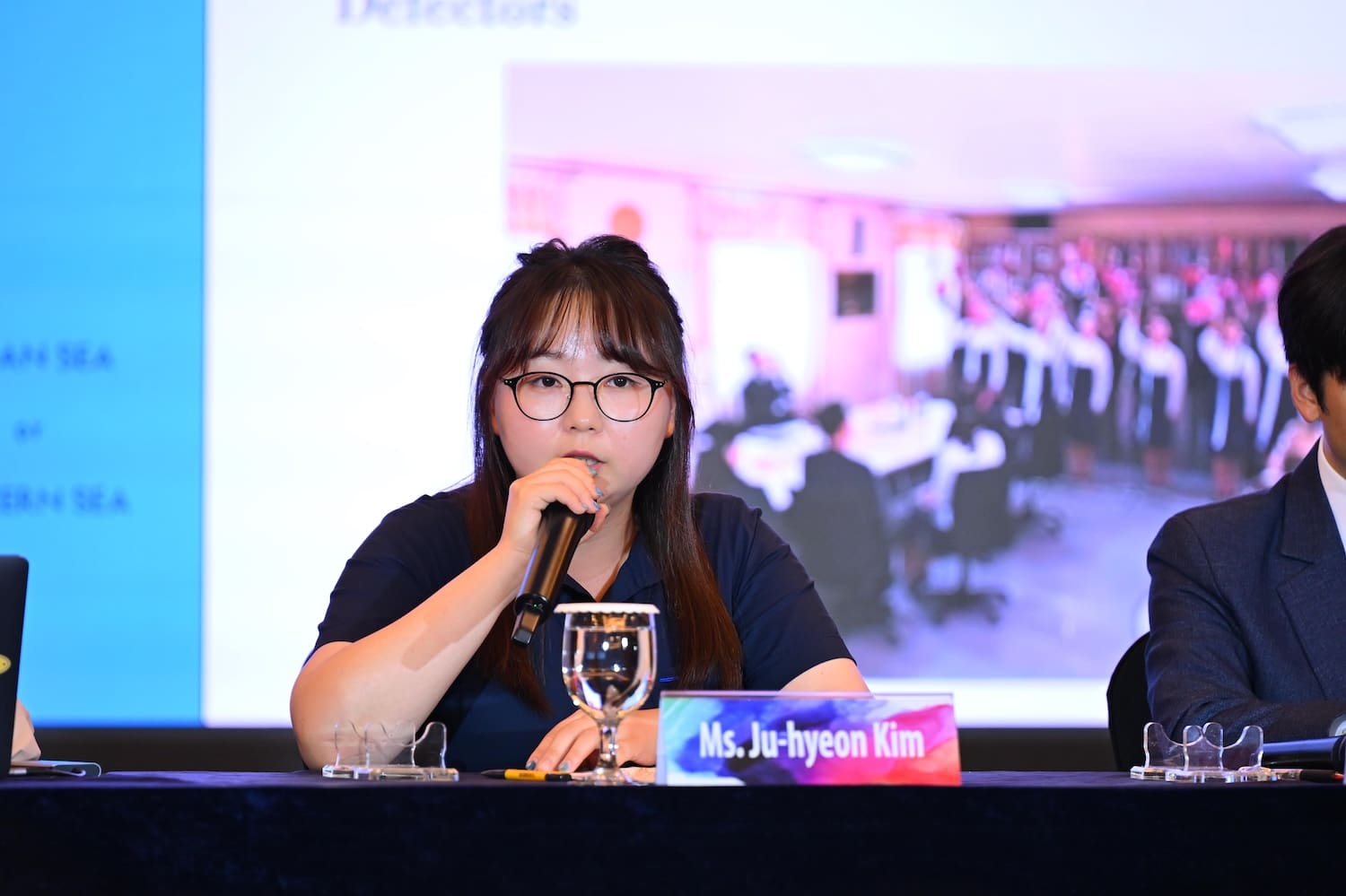
Ms. Ju-hyeon Kim, Secretary General, National Committee of North Korean Defectors
The forum’s final session featured riveting testimonies from North Korean escapees who expressed elation in tasting freedom and who saw their role as “human resources” who can serve as bridges for unification. This powerful and intimate session offers participants a rare opportunity to hear firsthand accounts from North Korean escapees who lived and endured in one of the world’s most repressive regimes. Now rebuilding their lives in freedom, the speakers shared personal stories of escape, resilience, and hope—illuminating the human rights situation inside North Korea, the challenges of resettlement in the South, and their vision for a peaceful, unified Korea.
“In North Korea, we couldn’t even dream freely,” said Ms. Ju-hyeon Kim, secretary general of the AKU National Committee of North Korean Defectors; “now I am serving as an advance guard preparing for unification together with 35,000 North Korean defectors nationwide.” Particularly, she emphasized, “the spirit of Hongik Ingan is the core value that unified Korea should pursue [and] the Korean Dream movement is precisely the modern implementation of this spirit.”
Realizing the Korean Dream
Through two days of dialogue and analysis, participants reached a consensus that the Korean Dream of a free and unified Korea can be realized through committed and sustained efforts—Korean-led and internationally supported.
Economic cooperation, cultural exchange, security cooperation, human rights reform, and civil society solidarity, guided by the ideals and values that bind the Korean people and nation together, can end the forced separation of a people with a shared language and culture, and liberate victims of a criminal regime in the North.
A unified Korea will promote peace and prosperity in Northeast Asia and the Indo-Pacific region, resolve the final remnants of Cold War confrontation, and be a model for nations “to live for the benefit of humanity.”
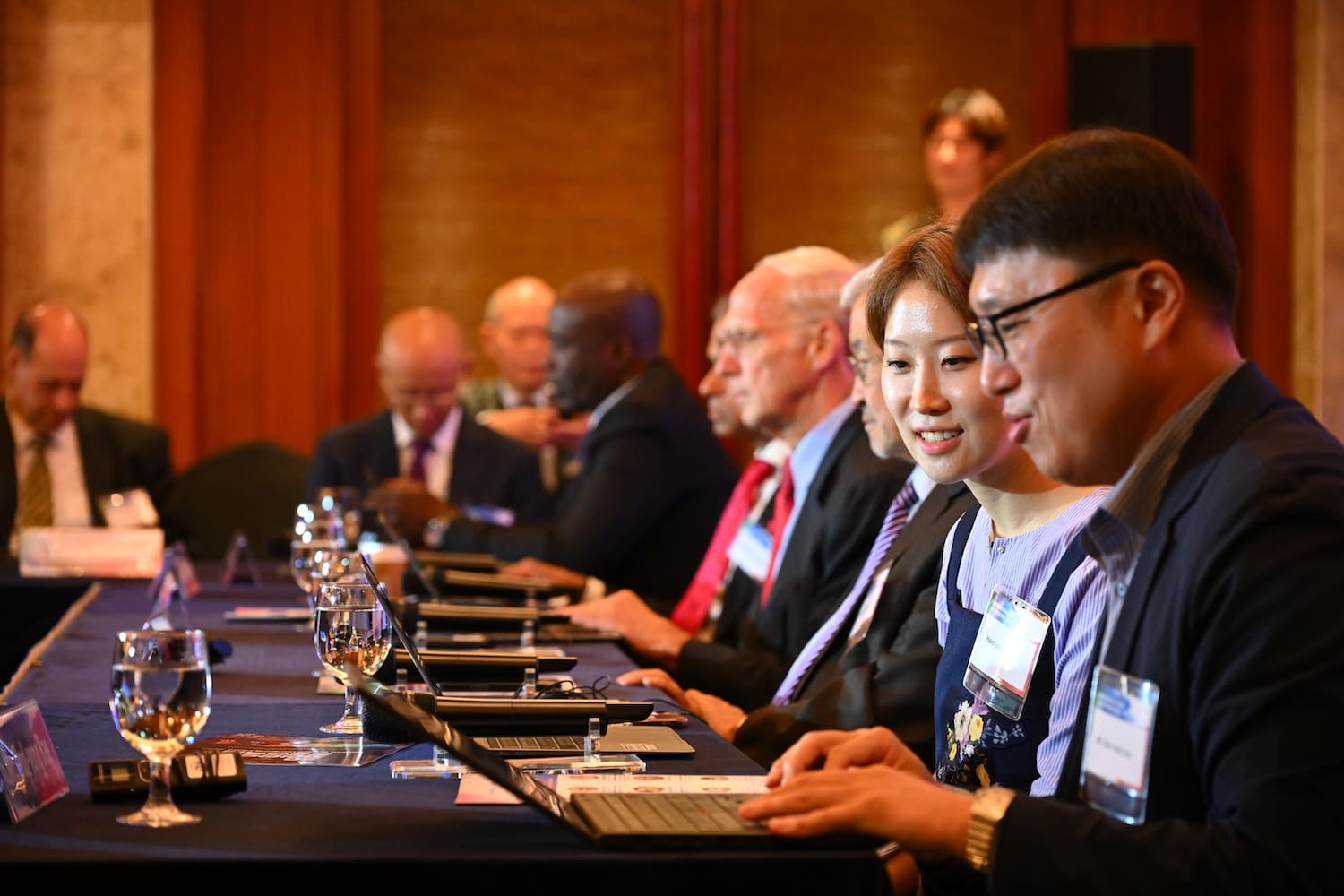
Attendees at the International Forum on One Korea 2025 held in Seoul, South Korea
The Global Peace Foundation launched the International Forum on One Korea series in 2017 and has since convened forums in the ROK National Assembly, the U.S. Congress, the Great Hall in Mongolia, and capital cities in Europe, Africa, and Latin America. GPF has also organized rallies, K-pop concerts, seminars, and working groups in Korea and globally to build grassroots support for reunification.
Learn more about GPF’s One Korea Global Campaign to support a free and united Korea.
